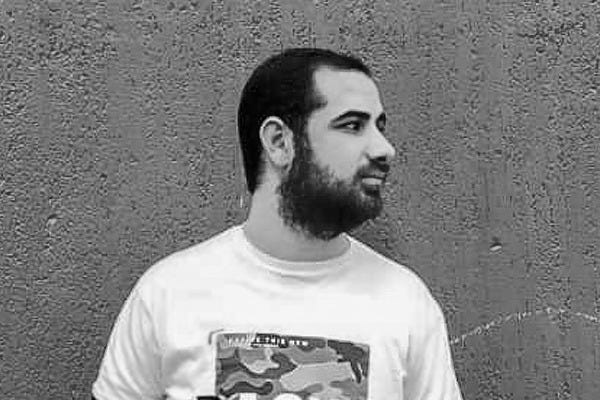How One Translator Challenged Syria’s Surveillance State
Abdulmueen Alsebai’s words became a threat to a dictatorship—and a catalyst for change
The first time Abdulmueen Alsebai was summoned by Assad’s security forces, he did not sleep the night before.
“I never slept,” he recalled. “I knew that they could take me, and if they did, I didn’t know if I’d come back.”
The crime that landed the then-23-year-old Syrian translator in an interrogation room was as simple as a single word: “Congratulations.” A congratulatory comment on Facebook had linked him, however distantly, to a wanted man, and in Syria’s suffocating surveillance state, that was enough to bring him under suspicion. When the regime called, he had no choice but to comply.
That first interrogation lasted two to three hours. The officers pressed him on his acquaintance with the man and demanded to know why they were connected on social media. But it was only the beginning. Weeks later, they called him back—this time for four or five hours—questioning him not about an acquaintance, but about his work.
Alsebai is a translator, a profession that, in many parts of the world, would seem unlikely to draw the ire of a dictatorship. But he works for Ideas Beyond Borders (IBB), an organization dedicated to translating and disseminating works on philosophy, political economy, and science—subjects deemed dangerous by the Assad regime. When the officers pressed him on his translations, he downplayed their significance. “I told them I translate books on medicine and physics,” he said. “Which I don’t do at all.”
The interrogators never got physical, but the psychological pressure was relentless. “They kept saying we will detain you, we will imprison you,” he recalled. “When I walked out, I was in shock. For two or three weeks, I couldn’t function. I just wanted to smoke anything, to do anything that would make me feel something else.”
Still, he never stopped translating. Even when the officer overseeing his case tried to recruit him as an informant—demanding that he report any mention of Syria, Assad, or Hezbollah in IBB’s work—he refused, though he knew the risk. “I never reported anything,” he said. “But I was in constant fear that they would call me again and ask why I hadn’t.”
Born in Homs in May 2000, Alsebai grew up in a conservative family. When the Syrian revolution erupted in 2011, he and his family were displaced multiple times, moving between Homs and Damascus before finally returning home in 2016. The war had shattered the country, and his family’s financial instability pushed him to seek work at a young age.
In 2018, he began volunteering as a translator. “We live in a hyperinflationary country,” he said. “The currency kept losing value year after year, and I needed a job.” He honed his skills across various projects, eventually landing a position with IBB’s House of Wisdom 2.0 project, which he credits as the defining opportunity of his career.
His translations focus on political philosophy, economics, and governance—subjects he believes are essential to reshaping the intellectual landscape of the Middle East. “People here don’t know enough about political philosophy,” he said. “That’s part of the problem with our governments. If we want a civil society that can protect its rights, we need to empower people with knowledge.”
For years, Alsebai lived under the constant threat of further interrogation, conscription into Assad’s military, or worse. “Every time I got a call from an unknown number, I had a mini heart attack,” he said. Military service in Syria, he explained, was often a form of indentured servitude. “If you didn’t want to serve, some officers would tell you, ‘You can stay home, but you have to pay me every month.’ It was slavery.” He ultimately avoided conscription by continuing his studies—being in school exempts men from being drafted, at least for a while.
Then, in December 2024, everything changed. Assad’s regime fell.
“When the regime fell on December 8, I felt like, for the first time, we had a country,” he said. “Before that, we weren’t citizens. We were prisoners.”
The timing was personal. Just months before, in July, his wife had become pregnant. Under the regime, they had contemplated leaving Syria entirely. “We even considered abortion,” he admitted. “I didn’t want to bring a child into a country where they would have no future.” He was relieved they ultimately decided to keep the baby, and with the collapse of the dictatorship, everything shifted. “Now, I want to raise my child here,” he said. “As long as things remain stable, we will stay.”
Looking forward, Alsebai is both hopeful and pragmatic. He believes Syria needs economic liberalization, property rights protections, and responsible monetary policies to undo the damage wrought by decades of socialist mismanagement. He advocates for pragmatic negotiations with the new government to encourage free-market reforms. “We need to move toward an open economy,” he said. “We need digital governance to reduce corruption, like what Estonia did after communism.”
His work with IBB remains crucial to him. He is particularly proud of translating Introduction to Taxation by Eamonn Butler, a book he believes can educate Syrians about the relationship between taxation and governance. “In Syria, people don’t understand their rights as taxpayers,” he said. “We need to change that.”
Meeting Dr. Tom Palmer, the renowned libertarian scholar and IBB advisory board member, in Damascus was another turning point. “We talked about how liberty can benefit both the government and the people,” he said. “We don’t need to be radical. We need to be pragmatic.”
But if his years under Assad’s regime taught him anything, it is that ideas are powerful—powerful enough to make dictators afraid, powerful enough to shape the future. And he has no plans to stop.
“We have to keep translating,” he said. “If we don’t, who will?”
This article was written by Reid Newton.





